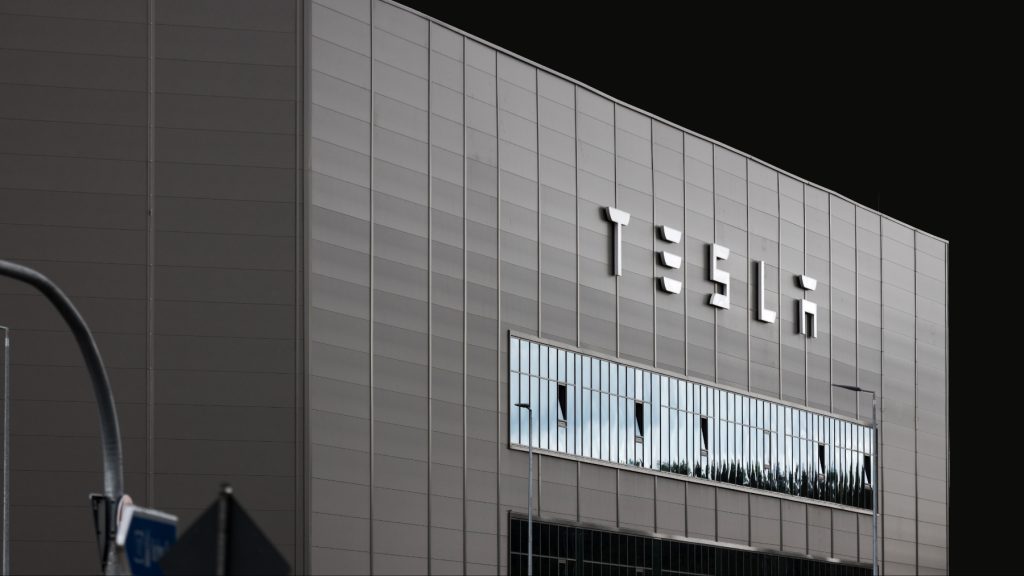
Environmental concerns halt Tesla’s expansion of its German electric car plant, as locals vote a resounding no.
- Tesla aimed to clear 250 acres of forest near its existing plant in Brandenburg.
- 65% of citizens opposed the expansion.
- The vote might be nonbinding, but local officials are leaning toward respecting the residents’ decision.
Grünheide locals thwarted Tesla’s expansion plans for its German electric car plant, setting back the electric vehicle (EV) giant.
The expansion proposed to clear 250 acres of forest near the existing plant in Brandenburg, Germany. This is necessary to accommodate additional logistical infrastructure, including a rail yard, a warehouse, and a daycare center. However, the proposal was met with a resounding NO, as 65% of citizens vehemently opposed it. They cited environmental impact and potential disruption to their way of life as reasons for their opposition.
Even though the vote is nonbinding, local officials pledge to honor the decision. Don’t you love it when Democracy does her job every once in a blue moon?
The local politicians have been proud of erecting Elon Musk’s Grünheide factory. In their defense, it did bring with it economic growth and created jobs in the area. However, now, the plant’s rapid development is cause for concern for the residents.
Expanding the factory would mean progress and circulation of the local economy. But that would be happening at the expense of environmental preservation, mainly air and water pollution.
Tesla probably won’t leave it at that, primarily because Germany is not just any European Union (EU) member. It has THE largest economy in the Union. Also, as of 2022, it accounts for almost 24.46% of the total EU GDP. Not to mention its political weight within the EU, which helps shape policies and regulations, impacting the entire bloc.
Let’s unpack the situation.
The locals are concerned about sustainability and environmental impact. Tesla fancies itself as a clean energy leader. Air and water pollution and deforestation would bring increased scrutiny. The law could potentially demand more transparent and verifiable practices. Everyone knows how such companies are allergic to transparency.
There once was a time when people would take any chance to have household names set up shop in their towns. However, things have changed now. As we are paying the price of our predecessors’ reckless expansions with a slowly boiling, melting, and off-kilter planet, everyone is concerned about the implications and ramifications of large-scale industrial projects. As this concern grows, the chances of stricter regulations for future expansions become more favorable. All it takes is for one voter to speak up for the dam to break. This could not only impact Tesla, but also other automakers, whether they made EVs or internal combustion engines (ICEs).
This united stance against the Big Bad Engine stresses the importance of community engagement in projects, including industrial ones. Hopefully, at some point, these big companies that leave the manufacturing to countries other than their own will have to answer the actual people living there, instead of solely talking to the fat cats.
Let’s say the little town’s stance becomes the whole country’s. It could set a precedent for other EU members. If they adopt similar regulations and community engagement models, the automotive industry could have a hard time moving forward in the region. This would be both good and bad. Good because it shows dedication to validating their people’s stance and desires. Bad because it would drive a trillion-dollar industry away.
A lot of people are unhappy about this development. Take a look at what German journalist, author, and editor, Holger Zschaepitz had to say about the situation.
But the thing about Germany is that, unlike many other countries, the government makes it a point to listen to their people. I mean, look at their social policies. Have you ever seen something so beautiful? The U.S. could use a lesson or two or a hundred on how to care for its people.
During the COVID-19 pandemic, the healthcare system not only boasted a high number of hospital beds and medical staff but also remained functional. The Germans even increased their fertility rates without obscene laws and bans on reproductive rights. In fact, they have generous parental leave programs and childcare availability. And so much more.
And none of that would have been possible if they didn’t listen to their citizens. Under certain circumstances, governments may know best. However, the majority of the time, it’s the people who know best because they are always concerned with the collective good rather than how to line their pockets.
Upsetting the residents, just so the Madman profits doesn’t sound like a fair exchange.
Inside Telecom provides you with an extensive list of content covering all aspects of the tech industry. Keep an eye on our Tech sections to stay informed and up-to-date with our daily articles.